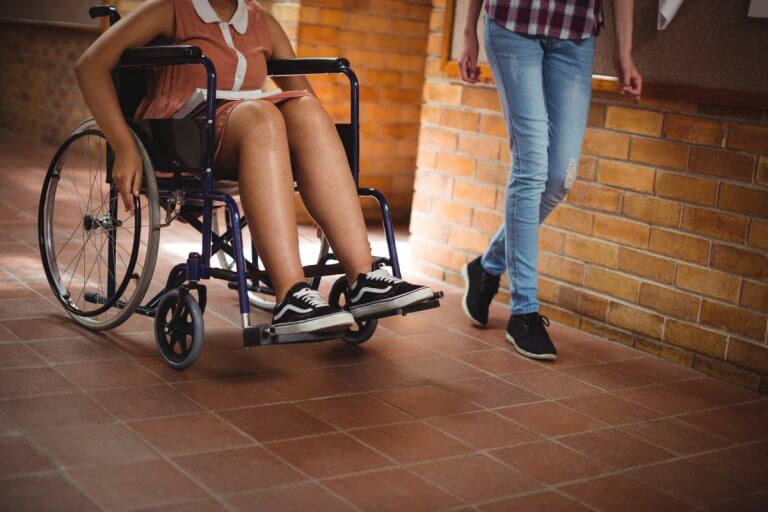
University campuses can often seem like labyrinths of complicated buildings, narrow staircases and confusing lay outs – especially in the first weeks of a new semester when students are desperately rushing to find their lecture rooms.
Finding your way around can be nightmare and if you’re in need of disabled access to get about, it’s even more challenging in a new and unfamiliar environment.
There’s absolutely no reason why this should stop you having a fantastic time at university, but scoping out the disabled access and facilities can help you adapt to the transition.
I spoke to disabled students who say they’re in a constant battle for better access at university https://t.co/oNvEWkIScK
— Fiona Rutherford (@Fi_Rutherford) 7 August 2017
Here are some handy tips to help you find the most disability-friendly universities:
Check the university’s access guide
Most universities, wherever in the world you are going, will have an access guide on their website. This will give you a full rundown of accessibility features for each building and key campus facilities.
One of the most important areas – accommodation – will also be included so you can decide exactly where the ramps, lifts and induction loop systems are before you move in.
Check the web
If you’re heading to a UK university, the website AccessAble is a lifesaver. It can tell you access not only at your university but across the whole city, from gig venues, to shops, pubs, cinemas and transport stations.
Our UK Disability News Online Paper is out! https://t.co/QAuj0OCorf
— AccessAble (@AccessAbleUK) October 15, 2018
Reach out before you arrive
Most universities should have an equalities manager who will be there to make your transition as smooth as possible. Check the website to get their contact details.
Any queries, these are the guys you need to speak to. They can also arrange a campus or accommodation visit beforehand to give you an idea of what the university offers, and which accommodation is right for you.
It’s also worth talking to people who’ve been there and done that. You should be able to track down an elected disability or access student officer who can talk you through exactly what it’s like being a student at your chosen university.
Pay the university a visit
As mentioned above, a visit to the university can be priceless when it comes to scoping out the lay of the land.
It’s also an opportunity for you to flag any worries you may have. If you find there’s an access problem to your lecture building for example, it’s their job to make sure you can get to class, so if you can give them a bit of time to have it all sorted before the start of the semester then it’s better for everyone.
Grants and allowances
Remember we’re open Monday to Friday 9.30am to 4.30pm – advice on counselling & mental health, disability, funding and all wellbeing and welfare issues https://t.co/kFyTNqvpWG pic.twitter.com/jLketSn65s
— University of Bath Student Services (@BathStuServices) 16 October 2018
You may well be entitled to extra grants to help meet additional costs associated with your studies. Each country, and in some cases universities, will have its own version of this, so it’s worth doing some research to see what you’re entitled to.
They could give you the extra dosh you need to get that user-friendly laptop or hire a notetaker – things that could revolutionise your study techniques!
Liked this? Then you’ll love these…
Betsy DeVos revoked 72 documents outlining disabled students rights
To fix higher education funding, we also need to fix vocational education







